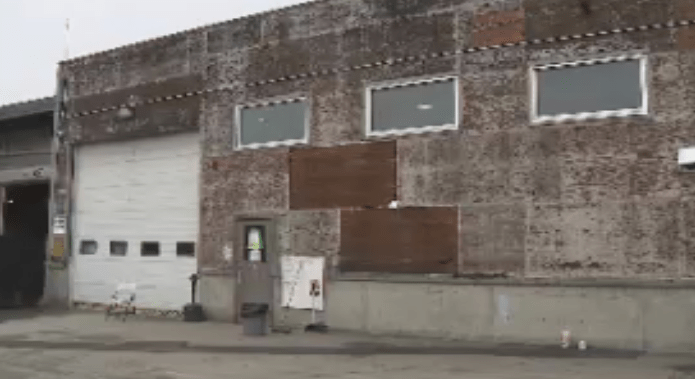A new-to-Penticton winter shelter model is so far proving successful.
“This is our first year operating the temporary model instead of the emergency response, which was temperature threshold, and it’s been such a vast change in being able to stabilize people,” said Desiree Surowski, executive director of the Penticton Overdose Prevention Society, which operates the site.
The temporary designation means, unlike previous years, the shelter is open all winter regardless of temperatures.
“We opened Nov. 16 and we will stay opened until March 31,” Surowski told Global news. “It’s 24 hours. People don’t have to reapply for a bed very day.”
Penticton city council received a progress report on the winter shelter during its regular meeting last week.
“It was very encouraging,” said Penticton Mayor Julius Bloomfield. “It’s been much more successful than previous efforts.”

Located in a mainly industrial area southeast of the downtown core, the shelter operates 24 hours a day, seven days a week. The operating hours are being attributed to reducing problems, such as daytime loitering.

Get breaking National news
For news impacting Canada and around the world, sign up for breaking news alerts delivered directly to you when they happen.
“Kicking everybody out at 9 a.m…. well what do you have then? You have 40 people in a neighbourhood waiting for it to open that night,” said Surowksi. “So there is going to be a greater impact.”
Under the new model, many problems have been largely alleviated.
“This has been a total game changer,” said Michael Magnusson, executive director for the Penticton and Wine Country Chamber of Commerce.
Magnusson said the chamber has received no complaints this winter from its business members — a stark difference from years past.
“Calling, emailing, sending me pictures of the complaints of what it was doing to the surrounding neighbourhoods,” Magnusson said. “We are hearing none of that this year.”

Another factor that’s being attributed to the success of the temporary winter shelter is the role the municipality is playing.
Bloomfield said the city decided to take a more hands-on approach with its winter shelter based on what he called ‘past failures’.
“Last year we had an emergency shelter that saw some level of success but we knew that could be improved upon,” the mayor said.
This season, the city is the one leasing the shelter space, which allows it to have a direct say on how it is run.
“I don’t know how many other communities do that, where they provide the space, or provide the building but … it gives the city the ability to be at the table at the conceptual stage to say, ‘Yeah, we need this kind of safety plan, we need this kind of community plan,’” Bloomfield said.
With a 24/7 continuum of care, the model has also resulted in 11 shelter residents moving on to more permanent type of housing.
“It’s worth taking a look at what’s happened here and how we’ve done it and how it could benefit other cities,” Bloomfield said.
A final report will be presented to city council at the end of March when the shelter closes.
That information will likely help shape future plans on sheltering the city’s most vulnerable population during the coldest months of the year.
© 2025 Global News, a division of Corus Entertainment Inc.






